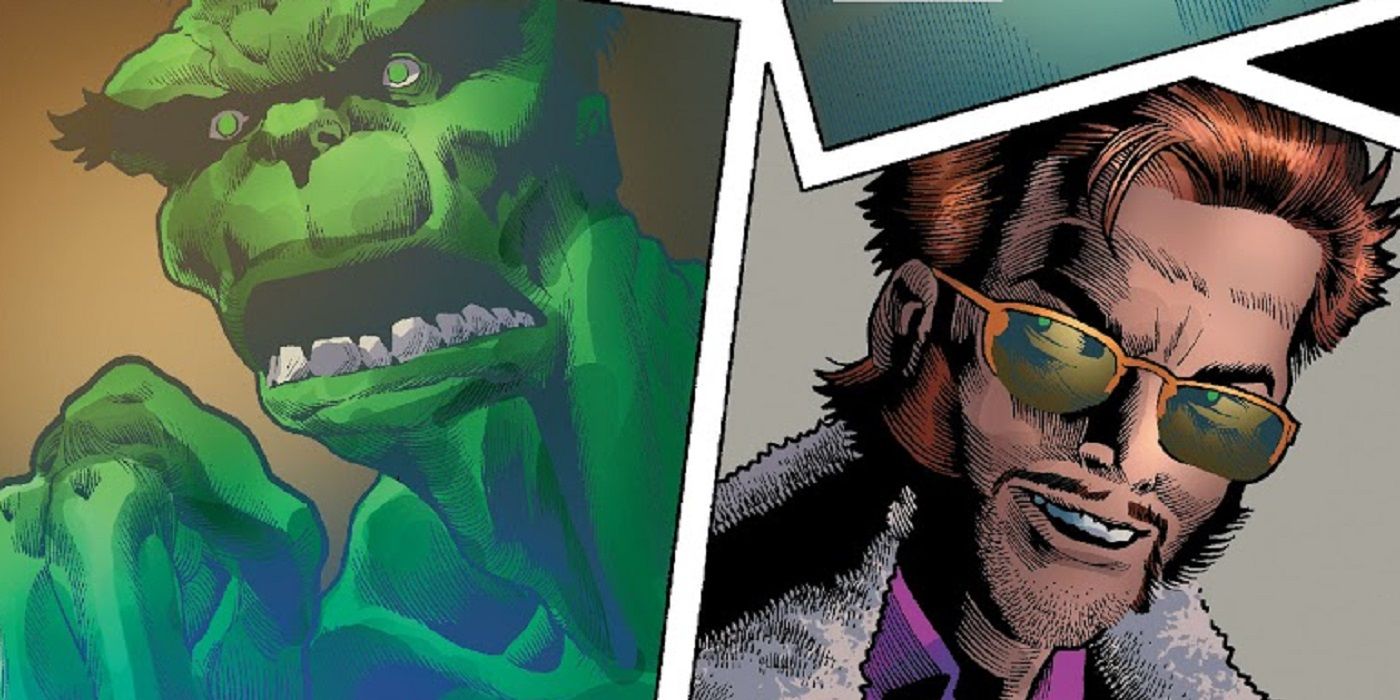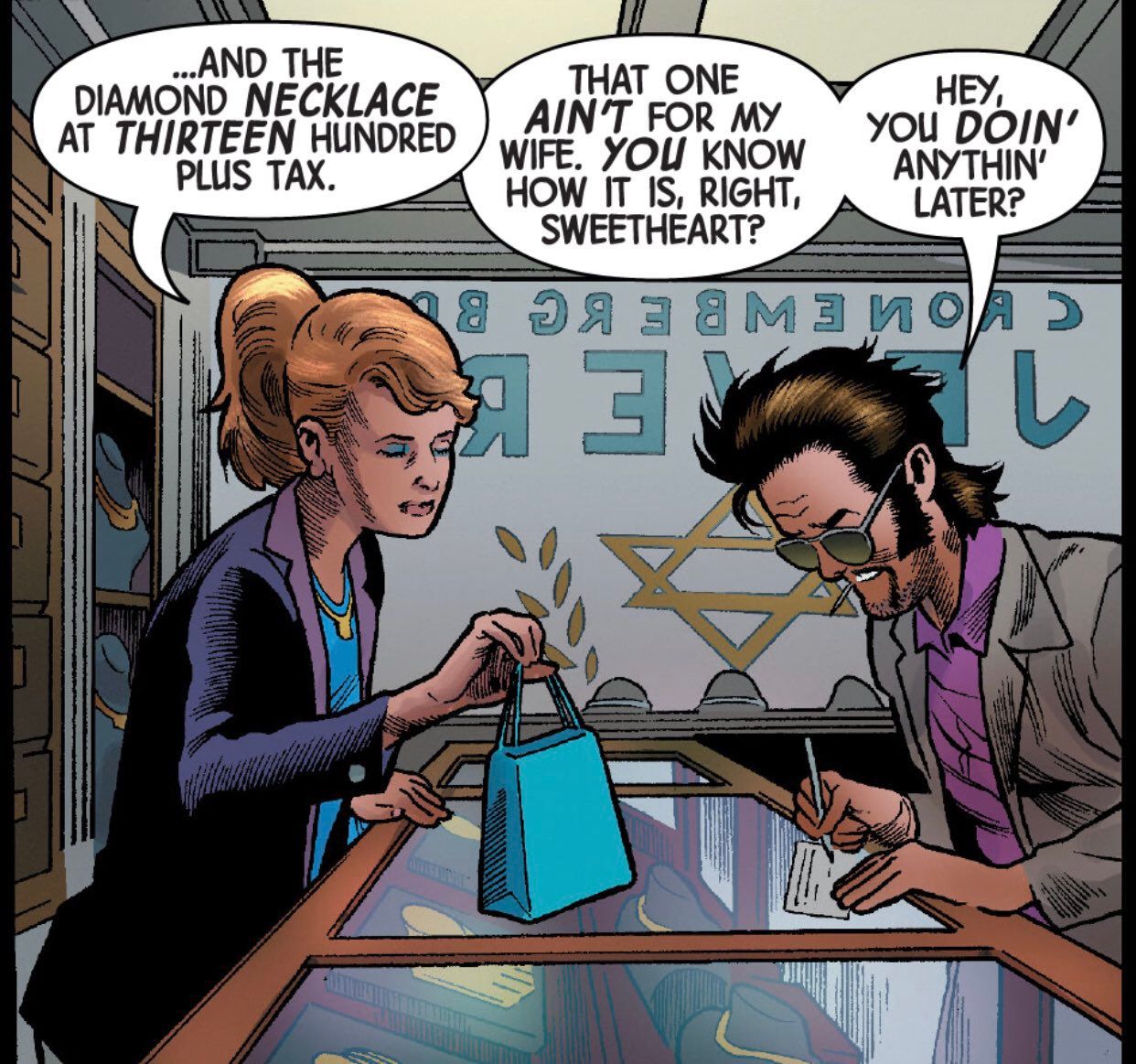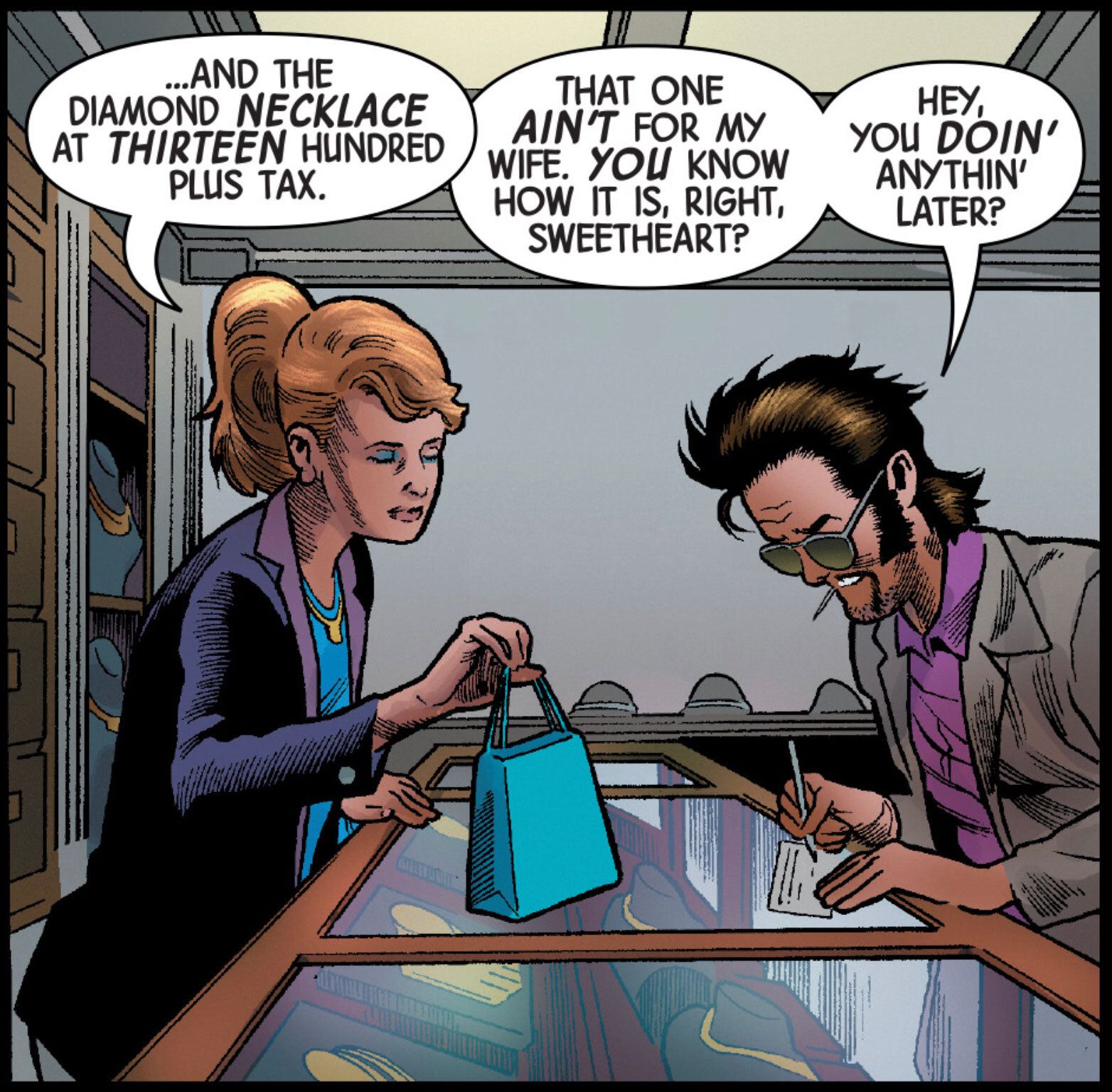
In response to the fan outcry over alleged anti-Semitic imagery in last week's Immortal Hulk #43, Marvel has edited the controversial panel out of the digital editions of the issue.
Marvel sent retailers a notice on last week stating, "Marvel is correcting and reprinting the main and variant editions of Immortal Hulk #43, originally on sale 2/3. Requests to return for exchange on Immortal Hulk #43 with these corrected versions may be made starting today." The same went for the digital purchases of the issue. While we have to wait for the printed corrections to be released, the digital corrections have already been made.
In the first edition of Immortal Hulk #43, artist Joe Bennett drew Bruce Banner (with one of the various Hulk personalities, "Joe Fixit," in control of his body) buying some jewelry with a stolen credit card. The name of the store, written in reverse in the store's window, was "Cronemberg's Jewery" (with the Y blocked out by the store clerk) with a Star of David, a noted Jewish symbol, in the window.

In the corrected digital version of the issue, the edit is fairly unsubtle, as simply all of the writing and signage in the window has been erased from the panel in its entirety.

Bennett explained that he just misspelled Jewelry while writing it backwards (there were a number of other store names written in reverse in store windows in the issue and Bennett misspelled a number of them, as well). As to the Star of David display, he noted on Facebook, "I have no excuse for how I depicted the Star of David. I failed to understand this troubling and offensive stereotype, and after listening to you all, I now understand my mistake. This was wrong, offensive, and hurtful in many ways. This is a mistake I must own, and I am sorry to everyone who I hurt by this. I am working with Marvel to correct this, and I am using this lesson to reflect on how I approach my stories and my work."
The first editions of the issue have become collectible items, but it is worth noting that Marvel is not doing an outright recall, but rather letting stores know that they can return the issues for replacements if they so choose to do so. The fact that it is not a "required" recall should make the issues a bit less rare (although, of course, even "required" recalls rarely lead to stores actually sending many copies back to the company, since the public tends to be drawn to "recalled" comic books).
0 Comments